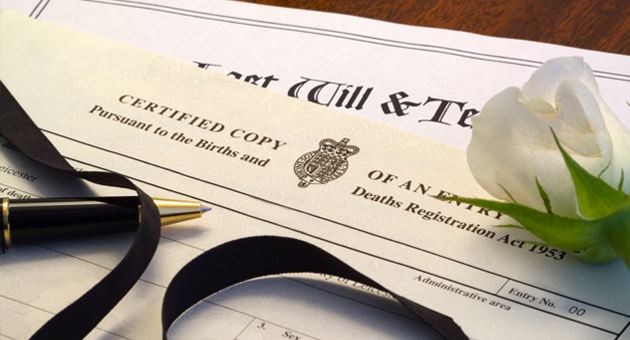Estate Planning & Death in a Wired World

For those who feel that traditional estate planning needs updating for the 21st century, digital estate planning which includes preservation of “digital assets” and leaving an on-line legacy – or not – should fit right in. It is best to consult with the Long Beach attorneys helping clients with probate issues before making permanent changes in the estate planning since they are keeping themselves updated with the latest change and would always suggest the best for their client’s future. Considering the digital estate planning, for instance, we send valuable information, documents or images into the “cloud,” most of us are not thinking what will happen to them after our death. Find out more about how long wrongful death cases take.
Along the same lines, we ask the question “can our estate access or end a Facebook account or delete u-Tube videos?” At a grim yet surprisingly playful website, DeadSoci.al offers members the ability to release messages on social media to their loved ones after they pass on either as a one-time communication or several over time so that, in a manner of speaking, there is an “ap” for that..
This is more than science fiction. The Virginia legislature recently passed House Bill 1752 that would provide personal representatives access to a minor decedent’s electronic accounts. The question originated with parents distraught over their son’s death who wanted access to his Facebook account to know what happened. Similar bills have been introduced in other states including Maryland and North Dakota. The Nebraska state legislature introduced Legislative Bill 37 which would “allow a personal representative of a dead person to decide the fate of his or her social networking, email or blogging account by either controlling, terminating or continuing it.”
Connecticut was the first to pass a law covering digital assets in 2005 and then it was old enough that it only referred to “electronic mail accounts.’ There are similar statutes in Rhode Island and Indiana. Oklahoma and Idaho laws also cover social networking sites. Some legal scholars have called for a uniform law that could be used as a prototype throughout the U.S.
In the meanwhile, here are some suggestions as to how to handle basic digital estate planning in the absence of a statute.
1. Make a list. Think of all your Facebook, Twitter, LinkedIn and other social media accounts. List them along with blogs, websites, e-mail addresses. Then also consider all of your financial sites with passwords or encryption. Bank accounts, brokerage accounts, retirement plans, credit cards, loans, insurance information, Pay Pal, utility bills and car payments paid on line all should be listed. The list is likely to be much longer than you originally thought. Understand how you can get legal experts to be passing down wealth to your children and more.
2. As to social media such as Facebook and others, consider how you want these accounts to be treated on your death. Do you want your executor to have access? Do you want to share information with others? Do you want to leave delayed messages or a memorial message? You would need to share user names, passwords and other access information in order to wind down the digital estate.
3. Write instructions as to how accounts, both financial and social media, are to be handled in the event of your death.
4. Designate a safe place for the information. You do not want a hacker to get your personal information. Think about who and how the information should be accessed.
5. Consider a “digital executor.” I owe this idea and some others to an interesting website, Next Avenue, accessible at www.nextavenue.org. Next Avenue published an on-line article available on its website, “5 Steps to Creating Your Digital Estate Plan” which is worth reading for anyone interested in this process. A digital executor might also be the executor already appointed in your Will but, if your executor is not comfortable with on-line accounts and communication you might appoint someone separately for this purpose.
Note that Next Avenue refers to a power of attorney. While access to digital information by a trusted person might be appropriate during life and might be added to a standard power of attorney, remember that, legally, a power of attorney ends at death.
6. Finally, know the rules of the providers. According to Next Avenue, Facebook, for instance, allows a digital executor to “memoralize” the user’s profile and allow viewing and posting on the wall for this purpose or deactivation.
Twitter only allows deactivation after a fairly complicated process. YouTube needs a death certificate and a document indicating that the person has power over the account. Gmail says it will allow access only “in rare cases.”
It is a new world out there in more ways than one.
About the Author Janet Colliton
Esquire, Colliton Law Associates, P.C. Janet Colliton has practiced law for over 38 years, 37 of them in Chester County, Pennsylvania, a suburb of Philadelphia. Her practice, Colliton Law Associates, PC, is limited to elder law, Medicaid, including advice, applications and appeals, and other benefits planning including Veterans benefits, life care and special needs planning, guardianships, retirement, and estate planning and administration.
